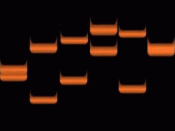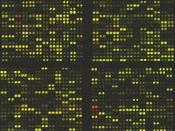Technology - the application of scientific knowledge for practical purposes.
Ethics - the moral principles governing or influencing conduct. (Little 2002)
The definitions of the above are unique in the fact that they can be completely at harmony with each other or mortal enemies.
The police cannot operate without information and have in recent years become more intelligence-led focussed. Most forces have moved away from the reactive style of policing into a more modern community focussed style of policing. It began with Problem Orientated Policing (POP) and into the new and updated system called Reassurance policing. Reassurance policing is co-dependant on intelligence-led policing. The first issue is to use intelligence data to identify where problems are and when they occur.
This intelligence is almost symbiotic with advanced technology systems, such as the Police National Computer, and forces local intelligence pods or officers who amass a wide range of information. These technologies are seen as vital new tools in crime-fighting and are also seen as a necessary response for the police to adopt in relation to the changing nature of some crime.
Criminals are becoming more and more techno literate and in some areas have the police at a distinct disadvantage. One clear example of the gap is in areas such as child abuse and money laundering.
The days of the dirty old man in a mac and the sackful of money are almost a thing of the past. If a paedophile wants to see children he or she no longer needs to go to a school or playground, they just have to access the relevant web-site. Simarily the days of walking into a bank to deposit proceeds of a robbery / burglary are also virtually non-existent. One just needs to tap in a few numbers to open accounts and electronically...



Sources
Sources are used for citation, but they are not referenced as bibliography. Otherwise paper is good.
0 out of 0 people found this comment useful.